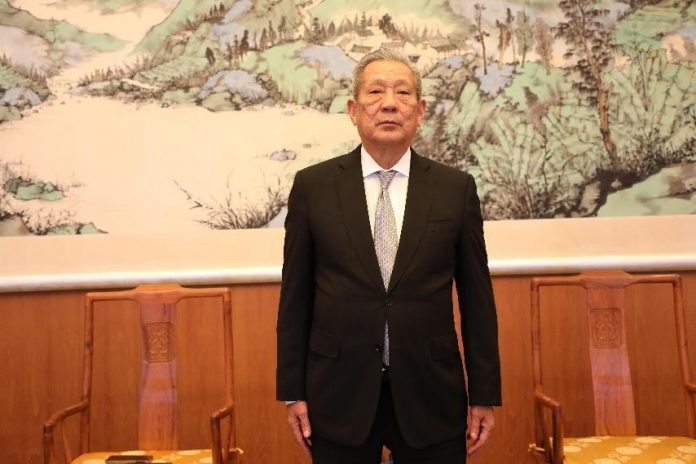By Phinij Jarusombat
I’ve visited China over 100 times and been to a lot of places in the country, where I was deeply impressed by the diligence, bravery, hospitality and tenacity of the Chinese people.
Under the leadership of the Communist Party of China (CPC), the country has achieved rapid economic and social development and significantly improved its people’s living standards, gaining abundant development experiences worth learning for other countries.
On a trip to Guangxi Zhuang autonomous region in south China, I saw that rural areas there had shaken off poverty by developing modern agriculture and the rural environment had been greatly improved. The Chinese government offered capital and technical support to promote the industrial development of rural areas and thus lift farmers’ income.
Since its reform and opening-up, China has lifted hundreds of millions of Chinese people out of poverty, which accounts for over 70 percent of global poverty reduction, meeting the poverty eradication goal set out in the United Nations 2030 Agenda for Sustainable Development 10 years ahead of schedule. It is a miracle in the history of poverty alleviation.
China follows a targeted poverty alleviation policy and makes individualized assistance measures for poor people to achieve efficient poverty alleviation, which is worth learning for other countries.
Poverty reduction needs efforts from all aspects, as well as the proper allocation of resources. China’s institutional advantages were a guarantee for the implementation of its poverty reduction policy.
From its poor and underdeveloped past to the present prosperity, China has completed leapfrog development. Today, the country is home to galloping bullet trains and ramified logistics network. It has constantly achieved technological outcomes in manned space, lunar exploration and other major scientific projects. Besides, the country is also continuously moving forward in scientific and educational development.
The leadership of the CPC is the fundamental reason for China’s progress and remarkable achievements. The CPC serves the people wholeheartedly and always strives for the well-being of all ethnic groups. The Chinese people trust and support the CPC. They have the reason to believe that only the CPC can bring them a better life.
China’s development bears important significance for the whole world. The international society admires the country’s achievements made under the leadership of the CPC.
The Belt and Road Initiative (BRI) proposed by the country is an important development opportunity for participating countries. The China-Laos Railway, upon operation, has forcefully driven regional development.
Besides, China has put forward the Global Development Initiative to cope with the severe challenges facing global development, which is conducive to enhancing global cooperation and realizing common development.
For Thailand, the BRI means new development opportunities in investment, logistics and infrastructure. More and more Chinese enterprises have expanded their investment in Thailand, which now involves a wider range of aspects. Thailand will play an active role in enhancing ASEAN-China connectivity for more win-win results.
The China-Thailand railway is under construction, which is expected by the Thai people to inject new impetus for regional development upon completion.
As a traditional agricultural country, Thailand attaches great importance to rural development and is very interested in China’s efforts to advance poverty alleviation in rural areas through e-commerce, build farmland water conservancy projects and popularize agricultural technologies.
China enables its farmers to get timely market information through the internet. It creates jobs for the farmers and helps increase their income through e-commerce. Such practices are worth learning for Thailand.
I believe the comprehensive cooperation between Thailand and China will keep upgrading, bringing more benefits to the two countries and peoples.
(Phinij Jarusombat is the former Thai deputy prime minister.)













